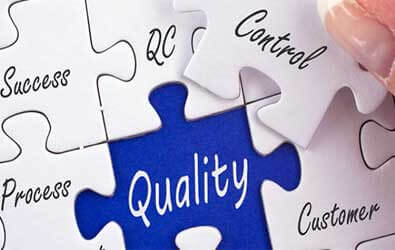
Language Services Bureau was proud to be associated with the World Skill Contest 2017 organized in Pune, in the first week of November by a major Automobile Manufacturer of India - we provided 14 interpreters for the contest and translated the question papers into 9 foreign languages for the written tests .. along with languages like Spanish, Arabic, Turkish, Nepali, Bangla, were rare languages like Khmer and Philipino .. to name a few! The interpreters facilitated communication between the examiners and candidates and helped them win different award categories!

We have often come across clients who require interpreters for their important meetings, audits, conferences or seminars .. however instead of approaching professionals, they hire their friends, colleagues, or even students to do the job!
The result is disastrous, to say the least!
Just like one can’t become a mathematician since one knows maths, or a scientist as one has learned science in school and college, similarly, just because a language is your mother tongue or as you have learned a foreign language, you don’t become qualified to do interpretation in that language!
If such people are hired for interpretation – there is either over-translation or under-translation – that means, the message is not communicated completely – it is either communicated with the extra information from interpreters or with omissions. Such misinterpretation can build up into one big misunderstanding or issues which are unpredictable in nature!
In fact, in most countries where Interpretation is required frequently and recognized as a profession, there exist specific Codes of Ethics and Codes of Conduct for the professionals who adhere to it.
Several specializations exist in interpretation – Every specialization requires knowledge of the domain in which work is to be done, along with sound and solid knowledge of the two languages concerned.
Imagine a technical interpreter who doesn’t know what a camshaft is or what it is called in the target language!
Or medical interpreters who can help communicate neither the doctors’ instructions to the patient nor the patients’ complaints to the doctor properly!!
In the US or Europe, the respective Government tries to rope in interpreters for different communities which lack basic amenities and are fighting for their rights like refugees, etc. One misinterpreted message, and it can add to the miseries of the suffering people.Imagine an international conference where multi-lingual interpretation is required. Once the main interpreter communicates what is being said in Spanish into English, the others interpret the message from English into various other languages. They will have to pass on an incorrect message if that is what comes through from the main Spanish-English interpreter!
It is therefore of paramount importance that the interpreters hired in all these circumstances are experienced professionals with knowledge of the specific field!
The Language Industry is still not a formally pronounced and recognized Industry in India. Most people work as freelancers. Formal education in interpretation does not exist in most Indian languages, and at very few universities for foreign languages. This leads to multiple problems for the end client:
Trust us for your next interpretation requirement and get in touch with us for all your language requirements on info@languageservicesbureau.com
Get in touch with us today on our email id or call us on: info@languageservicesbureau.com
Telephone: +91-20-24470509, +91-82370 60559
Similar articles for you...

आमच्या गेल्या महिन्यातील ब्लॉग मध्ये भाषांचे ज्ञान आवश्यक असणाऱ्या करियर क्षेत्रांची माहिती आपल्याला मिळाली. जिथे भाषेचे ज्ञान फायद्याचे ठरते असे इतर व्यवसाय आपण या महिन्यात पाहुयात.

Posted by : Language Services Bureau

तुम्ही कोणत्या ही क्षेत्रात काम करीत असलात तरी विविध भाषांचे ज्ञान अवगत असणे, हे एक महत्वाचे कौशल्य आहे. जागतिकी करण, आंतरराष्ट्रीय व्यापार उद्दमा मध्ये झपाट्याने झालेली वाढ, इंटरनेट व त्याची व्याप्ती यांमुळे नोकरीसाठी उमेदवारांची निवड करताना उमेदवाराला एखादी परकीय भाषा अवगत असेल तर त्याला निश्चितच प्राधान्य मिळते.